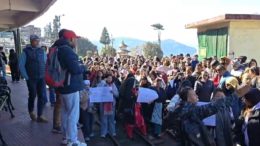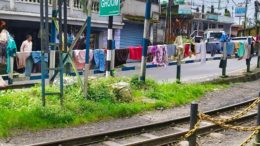Nepathya Live: For the First Time, Nepathya Bring Their Voice to Siliguri
Nepathya Live in Siliguri marks the band’s debut performance in the city, a moment long anticipated by audiences across North Bengal, Sikkim, and the Eastern Himalayan region—where Nepathya’s songs have circulated for years through recordings, memory, and cultural inheritance, but never before through a Siliguri stage.
The concert will be held at Utsodhaara Teesta Township, behind Kawakhali Ground, placing Siliguri—often described as a gateway city—at the center of a rare cross-border cultural convergence.










